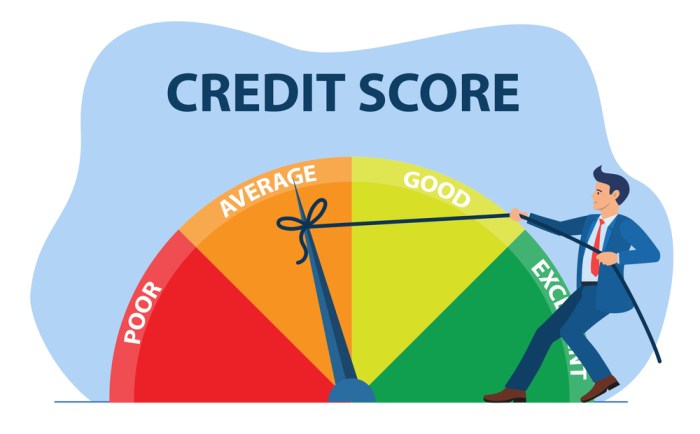Kicking off with Credit Score Improvement, get ready to elevate your financial game to the next level. We’re diving into the key factors that can make or break your credit score, from payment history to credit utilization. Let’s unlock the secrets to improving your credit score and securing a brighter financial future.
Importance of Credit Score Improvement
Having a good credit score is essential for financial health as it can greatly impact various aspects of your life. A higher credit score can lead to better loan terms and interest rates, saving you money in the long run. It also plays a crucial role in your ability to secure housing or employment opportunities.
Impact on Loan Terms and Interest Rates
Maintaining a good credit score can result in lenders offering you lower interest rates and more favorable loan terms. This can make a significant difference in the amount of money you pay over the life of a loan, whether it’s for a car, a home, or any other major purchase.
Credit Scores and Housing/Employment
Landlords and potential employers often check credit scores as part of their screening process. A good credit score can increase your chances of being approved for a rental property or landing a job. On the other hand, a poor credit score may limit your options or even result in outright rejection.
Factors Affecting Credit Score
When it comes to credit scores, there are several key factors that play a significant role in determining an individual’s overall score. Understanding these factors is crucial in improving and maintaining a healthy credit score.
Payment History
Your payment history is one of the most important factors affecting your credit score. It accounts for about 35% of your total score. Making timely payments on your credit accounts, loans, and bills is crucial for maintaining a good credit score. Late payments, defaults, or collections can have a negative impact on your credit score.
Credit Utilization
Credit utilization refers to the amount of credit you are using compared to the total amount of credit available to you. This factor makes up about 30% of your credit score. Keeping your credit utilization ratio low, ideally below 30%, shows lenders that you are not overly reliant on credit and can manage your finances responsibly.
Credit Age
The length of your credit history also plays a role in determining your credit score. This factor makes up about 15% of your score. Lenders like to see a long credit history with a track record of responsible credit use. Opening and maintaining credit accounts over time can help improve your credit age and boost your score.
Inquiries and Credit Mix
Inquiries and credit mix make up the remaining 20% of your credit score. Hard inquiries, which occur when you apply for new credit, can temporarily lower your score. It’s important to be mindful of how often you apply for new credit. Additionally, having a diverse mix of credit accounts, such as credit cards, loans, and a mortgage, can demonstrate your ability to manage different types of credit responsibly.
Strategies for Improving Credit Score: Credit Score Improvement

Maintaining a good credit score is essential for financial stability. Here are some effective strategies to help improve your credit score:
Maintain a Good Payment History
One of the most important factors in determining your credit score is your payment history. Make sure to pay all your bills on time, including credit card payments, loan payments, and utilities. Late payments can have a negative impact on your credit score.
Reduce Credit Card Balances and Improve Credit Utilization
High credit card balances can negatively affect your credit score. Aim to keep your credit card balances low and pay off any outstanding balances as quickly as possible. Additionally, try to keep your credit utilization ratio below 30% – this means only using 30% or less of your available credit limit.
Monitor Credit Reports for Errors and Dispute Inaccuracies
Regularly check your credit reports from the major credit bureaus – Equifax, Experian, and TransUnion. Look for any errors or inaccuracies that could be impacting your credit score. If you find any discrepancies, file a dispute with the credit bureau to have them corrected.
Impact of Credit Score Improvement on Financial Goals

Improving your credit score can have a significant impact on achieving your financial goals. A better credit score opens up opportunities for better interest rates on loans, access to higher credit limits, and overall financial stability.
Lower Insurance Premiums, Credit Score Improvement
Improving your credit score can lead to lower insurance premiums. Insurance companies often use credit scores as a factor in determining premiums for auto, home, and other types of insurance. A higher credit score can demonstrate financial responsibility and lower the risk of filing claims, leading to potential discounts on insurance premiums.
Investment Opportunities
Credit score improvement can open up investment opportunities by providing access to better financing options. With a higher credit score, you may qualify for lower interest rates on investment loans, mortgages, or other forms of financing. This can help you leverage your credit to invest in real estate, stocks, or other financial assets, ultimately helping you grow your wealth over time.









